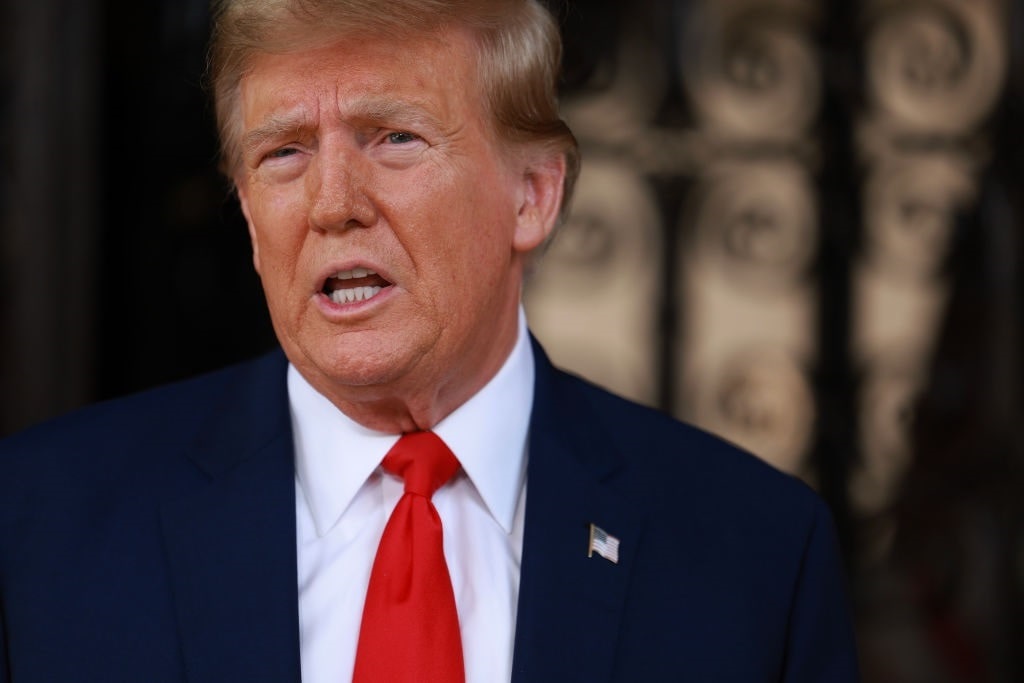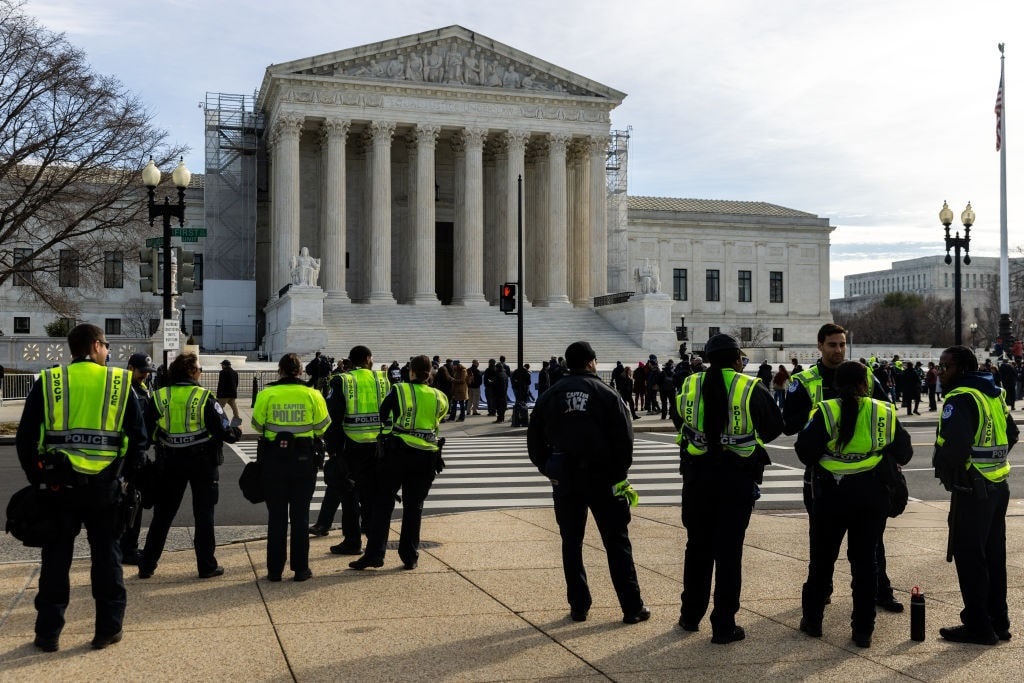It was all about Trump v. Anderson at the Supreme Court on Thursday, February 8, as justices heard oral arguments as to whether Donald Trump can be kept off the Colorado ballot. The case will likely serve as a stand-in for all jurisdictions challenging Trump from appearing on state primary and general election ballots for president in 2024. Justices seemed sympathetic to the former president, including one of the Court’s most progressive: Ketanji Brown Jackson. The challenge asserted Trump was ineligible because he engaged in insurrection on and before January 6, 2021.
Supreme Court Prediction – Trump Wins

Donald Trump (Photo by Joe Raedle/Getty Images)
Predicting how the Supreme Court will rule on any given issue is generally regarded as a fool’s errand. However, this case may be the exception to the rule. Republican-appointed Justices were expected to respond skeptically to arguments for removing Trump. But Joe Biden’s lone Supreme Court appointee seemed likely to rule for the former president as well. Given the Court’s makeup, with five or six of the nine justices considered political conservatives, any support for Trump’s case from the liberal bloc speaks volumes.
The Court heard arguments to resolve whether the Colorado Supreme Court acted lawfully in ordering President Trump off the ballot because of the 14th Amendment’s insurrection provision. The measure was passed after the Civil War to keep former Confederate soldiers from coming to power. Does the measure include the president, however? The first part of the relevant section reads: “No person shall be a Senator or Representative in Congress, or elector of President and Vice-President, or hold any office, civil or military, under the United States, or under any State…”
If You’ve Lost Jackson, You’ve Lost Your Case
Justice Jackson suggested plainly that the 14th Amendment may not cover the president. “The thing that really is troubling to me is I totally understand your argument, but they were listing people that were barred and president is not there,” she argued. “And so I guess that just makes me worry that maybe they weren’t focusing on the president…”
Jason Murray, who represented the never-Trumpers that brought the case, did not perform well before the High Court. He fumbled responses to Justice Jackson and Justice Neil Gorsuch, who had to repeatedly admonish him to address the questions posed instead of answering questions he wished had been asked. High-quality appellate advocacy includes acknowledging challenges to the case theory and presenting the best counter-arguments. Mr. Murray tried to ignore or brush past the most robust challenges to his case, magnifying the weaknesses rather than covering them. After trying time and again to see Murray address a specific question, Gorsuch interrupted himself to admonish the lawyer in advance:
“[A]nd I’m not going to say it again, so just try and answer the question. If you don’t want to answer it, fair enough, we’ll move on.”
Legal commentators from across the ideological spectrum predicted a Trump win after the drubbing Murray and his advocacy received. Law professor and conservative favorite Jonathan Turley wrote: “The disqualification advocates may have expected a cold reception, but this was perfectly glacial. Notably, some of the toughest and most skeptical questions came from the left of the Court.” He was joined by MSNBC regular and progressive legal commentator Elie Mystal, who tweeted:
“Jackson is worried about the lack of uniformity, with different states saying different candidates are ineligible. She doesn’t think the framers would have designed such a thing.
“She’s gone, folks. I suppose… Sotomayor could still be holding out but… this is done.”
Ordinarily, Supreme Court cases aren’t decided until many weeks or months after they are argued. While the justices did not discuss the timing of any ruling, we should expect a decision in this case rather soon because of the election and the stakes involved.




